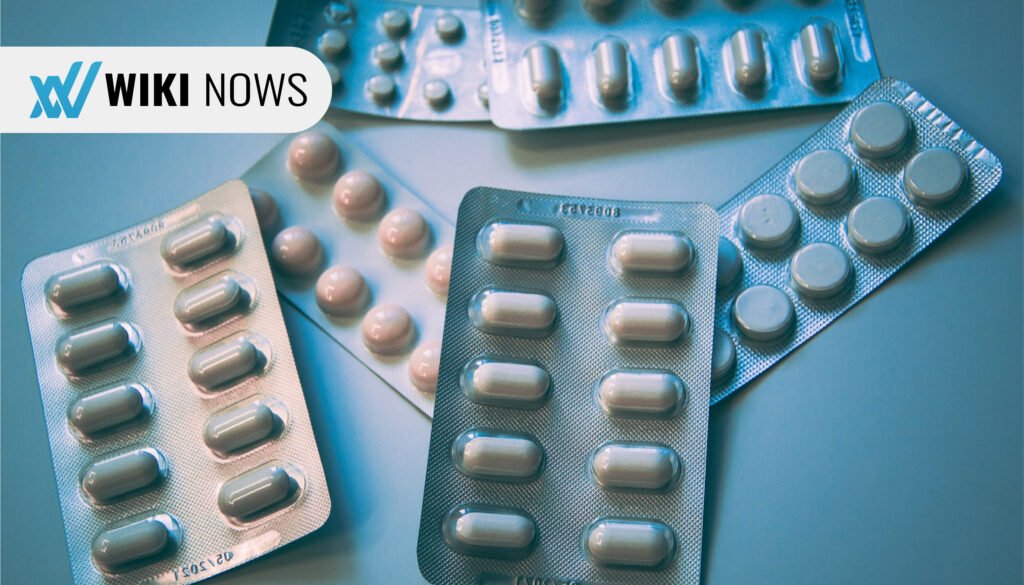In the world of digestive health, keeping stomach ulcers at bay is a significant concern. Enter ulcuprazol, a medication gaining attention for its effectiveness. For health enthusiasts and pharmacists alike, understanding how ulcuprazol works, its benefits, and proper usage is essential. This blog post aims to provide a comprehensive overview of ulcuprazol, compare it with other antiulcer medications, analyze recent research, and offer practical advice on usage and interactions.
What is Ulcuprazol?
It is a proton pump inhibitor (PPI) used to treat stomach ulcers and gastroesophageal reflux disease (GERD). By inhibiting the hydrogen-potassium ATPase enzyme system in the gastric parietal cells, ulcuprazol effectively reduces stomach acid production. This mechanism of action makes it highly effective in healing ulcers and preventing their recurrence.
Understanding how it works compared to other antiulcer medications is crucial. While histamine-2 receptor antagonists (H2RAs) like ranitidine and famotidine also reduce stomach acid, they do so by blocking the histamine receptors on the stomach’s acid-producing cells. On the other hand, PPIs like it directly inhibit the proton pump, providing a more potent and long-lasting reduction in acid production.
Recent research has highlighted ulcuprazol’s efficacy in treating ulcers and GERD. Clinical studies have shown that ulcuprazol can significantly reduce ulcer healing time and improve symptoms of acid reflux. These findings make ulcuprazol a valuable tool for healthcare providers and patients seeking effective treatment for digestive health issues.
How Ulcuprazol Works
At its core, ulcuprazol works by inhibiting the proton pump in the stomach lining. The proton pump is responsible for secreting hydrochloric acid into the stomach, which aids in digestion but can cause harm when produced in excess. By blocking this pump, it reduces acid production, allowing ulcers and other damaged tissues to heal.
The inhibition of the proton pump is a key differentiator between ulcuprazol and other medications. Unlike H2RAs, which block histamine receptors to reduce acid production, it offers a more direct and potent approach. This makes it particularly effective for severe cases of ulcers and GERD.
The onset of action for it is relatively quick, with patients often experiencing relief within a few days of starting treatment. However, it’s important to note that while it provides significant relief, it should be used as part of a comprehensive treatment plan that includes lifestyle modifications and dietary changes.
Comparing Ulcuprazol to Other Antiulcer Medications
When it comes to treating ulcers and GERD, several classes of medications are available, each with its mechanism of action and efficacy profile. Understanding the differences between these medications can help healthcare providers tailor treatment plans to individual patient needs.
Histamine-2 receptor antagonists (H2RAs) like ranitidine and famotidine work by blocking the histamine receptors on the stomach’s acid-producing cells. This reduces acid production, providing relief from symptoms and promoting healing. However, H2RAs are generally considered less potent than proton pump inhibitors (PPIs) like ulcuprazol.
Proton pump inhibitors (PPIs) such as ulcuprazol directly inhibit the proton pump, offering a more potent and long-lasting reduction in acid production. This makes PPIs particularly effective for severe cases of ulcers and GERD. Additionally, PPIs have a longer duration of action compared to H2RAs, often requiring only once-daily dosing.
Antacids, another class of medications, work by neutralizing stomach acid rather than reducing its production. While antacids can provide rapid relief from symptoms, they do not promote the healing of ulcers and are not suitable for long-term management of GERD.
Recent Research on Ulcuprazol
Recent clinical studies have provided valuable insights into the efficacy and safety profile of it. One study published in the Journal of Gastroenterology found that ulcuprazol significantly reduced ulcer healing time compared to H2RAs. Patients treated with ulcuprazol experienced faster relief from symptoms and a higher rate of complete ulcer healing.

Another study highlighted ulcuprazol’s effectiveness in managing GERD. Researchers found that ulcuprazol not only reduced acid production but also improved esophageal motility, further enhancing its therapeutic benefits. These findings underscore it’s potential as a comprehensive treatment for digestive health issues.
Safety is a critical consideration when evaluating any medication. Fortunately, it has been shown to have a favorable safety profile. Most adverse effects associated with ulcuprazol are mild and transient, with the most common being headache, diarrhea, and nausea. Long-term use of it has been associated with an increased risk of certain infections and nutrient deficiencies, but these risks can be managed with appropriate monitoring and preventive measures.
Correct Usage and Dosages of Ulcuprazol
For ulcuprazol to be effective, it’s essential to follow the recommended dosages and usage guidelines. The standard dosage for treating ulcers and GERD is usually 20-40 mg taken once daily before a meal. However, the exact dosage may vary depending on the severity of the condition and the patient’s response to treatment.
It’s important to take it exactly as prescribed by a healthcare provider. Skipping doses or discontinuing treatment prematurely can reduce its effectiveness and increase the risk of recurrence. Patients should also be aware that it may take a few days to experience significant relief from symptoms, so patience and adherence to the treatment plan are crucial.
In addition to following dosage guidelines, patients should avoid certain foods and beverages that can exacerbate acid production. Spicy foods, caffeine, and alcohol are common triggers that can reduce the effectiveness of it. Making dietary modifications and adopting a healthy lifestyle can further enhance the benefits of ulcuprazol treatment.
Potential Interactions with Ulcuprazol
Like all medications, it can interact with other drugs and supplements, potentially altering their effects. Patients need to inform their healthcare provider of all medications they are currently taking to avoid potential interactions.
One notable interaction is with antiretroviral drugs used to treat HIV. It can reduce the absorption of these medications, potentially decreasing their effectiveness. Patients on antiretroviral therapy should consult their healthcare provider before starting ulcuprazol.
Other potential interactions include drugs that require an acidic environment for absorption, such as ketoconazole and iron supplements. It’s acid-reducing effect can impair the absorption of these medications, necessitating adjustments in dosing or timing of administration.
Patients should also be cautious when using over-the-counter antacids while on it. While occasional use of antacids is generally safe, excessive use can interfere with it’s effectiveness. It’s best to consult a healthcare provider before combining these medications.
Long-Term Benefits of Ulcuprazol
Beyond its immediate effects on symptom relief and ulcer healing, it offers several long-term benefits for digestive health. By maintaining reduced acid production, it helps prevent the recurrence of ulcers and minimizes the risk of complications such as bleeding and perforation.
For patients with GERD, long-term use of it can provide sustained relief from acid reflux symptoms and improve overall quality of life. Chronic acid exposure can damage the esophagus and lead to conditions like Barrett’s esophagus, which increases the risk of esophageal cancer. By effectively managing acid production, it helps protect the esophagus and reduce these risks.

In addition to its protective effects, it has been shown to improve gastric motility, enhancing the overall function of the digestive system. This can be particularly beneficial for patients with functional dyspepsia and other motility disorders.
Practical Advice for Health Enthusiasts and Pharmacists
For health enthusiasts and pharmacists, understanding the practical aspects of ulcuprazol usage is essential. Educating patients on the correct use of it, including dosage guidelines and potential interactions, can enhance treatment outcomes and minimize risks.
Pharmacists play a crucial role in monitoring patients’ progress and addressing any concerns or side effects. Regular follow-ups and open communication with patients can help identify issues early and ensure that ulcuprazol is used safely and effectively.
Health enthusiasts can benefit from incorporating ulcuprazol into a comprehensive approach to digestive health. This includes adopting a balanced diet, managing stress, and avoiding triggers that can exacerbate acid production. By combining ulcuprazol with healthy lifestyle choices, individuals can achieve optimal digestive health and prevent future issues.
Addressing Common Concerns About Ulcuprazol
Despite its benefits, some patients may have concerns about using ulcuprazol. Common questions include:
- The potential for side effects.
- The risk of dependency.
- The long-term impact on overall health.
While most side effects of ulcuprazol are mild and transient, it’s important to address any concerns promptly. Patients experiencing persistent or severe side effects should consult their healthcare provider for guidance.
The risk of dependency on it is generally low, especially when used as directed. However, discontinuing the medication abruptly can lead to rebound acid hypersecretion, where the stomach produces an excess of acid. To mitigate this risk, healthcare providers may recommend gradually tapering the dosage before stopping treatment.
Regarding long-term impact, studies have shown that the benefits of ulcuprazol in managing ulcers and GERD outweigh the potential risks for most patients. Regular monitoring and preventive measures can further enhance its safety profile.
Ulcuprazol in Comparison to Natural Remedies
While it is a highly effective medication, some individuals may prefer natural remedies for managing digestive health. Comparing ulcuprazol to natural alternatives can help patients make informed decisions based on their preferences and health goals.
Natural remedies like aloe vera, ginger, and licorice root have been traditionally used to soothe digestive issues. While these remedies can provide relief for mild cases, they may not be as effective as ulcuprazol for severe ulcers and GERD.
Combining it with natural remedies can offer a holistic approach to digestive health. For example, using ginger tea to alleviate nausea while taking ulcuprazol can provide complementary benefits. However, patients should consult their healthcare provider before combining treatments to avoid potential interactions.
Future Directions in Ulcuprazol Research
The field of gastroenterology is continually evolving, and ongoing research is exploring new applications and improvements for ulcuprazol. Future studies may focus on optimizing dosing regimens, reducing side effects, and expanding the range of conditions that ulcuprazol can effectively treat.
One potential area of research is the use of ulcuprazol in combination with other medications for enhanced therapeutic benefits. For example, combining ulcuprazol with prokinetic agents could further improve gastric motility and symptom relief for patients with functional dyspepsia.

Additionally, advancements in drug delivery systems may enhance the bioavailability and efficacy of it. Novel formulations, such as extended-release tablets or nanoparticles, could provide more consistent and targeted delivery of the medication.
Ulcuprazol and Digestive Health Awareness
Raising awareness about digestive health and the benefits of it is essential for improving patient outcomes. Health campaigns and educational programs can help individuals recognize the signs of digestive issues and seek timely treatment.
Pharmacists and healthcare providers can play a pivotal role in promoting digestive health awareness. By educating patients on the importance of early intervention and the benefits of medications like it, they can empower individuals to take control of their health.
Community outreach programs, health fairs, and online resources can also contribute to increasing awareness and knowledge about digestive health. Providing accessible and reliable information can help individuals make informed decisions and prioritize their well-being.
Conclusion
It is a powerful tool in the management of ulcers and GERD, offering significant benefits for digestive health. By inhibiting the proton pump and reducing acid production, it promotes healing, prevents recurrence, and improves overall quality of life.
For health enthusiasts and pharmacists, understanding the comprehensive aspects of ulcuprazol, from its mechanism of action to practical usage guidelines, is essential. Staying informed about the latest research and addressing common concerns can enhance patient care and outcomes.
Whether you’re a healthcare professional or an individual seeking to improve your digestive health, it offers a reliable and effective solution. By combining ulcuprazol with healthy lifestyle choices and staying proactive about digestive health, you can achieve lasting well-being and vitality.




